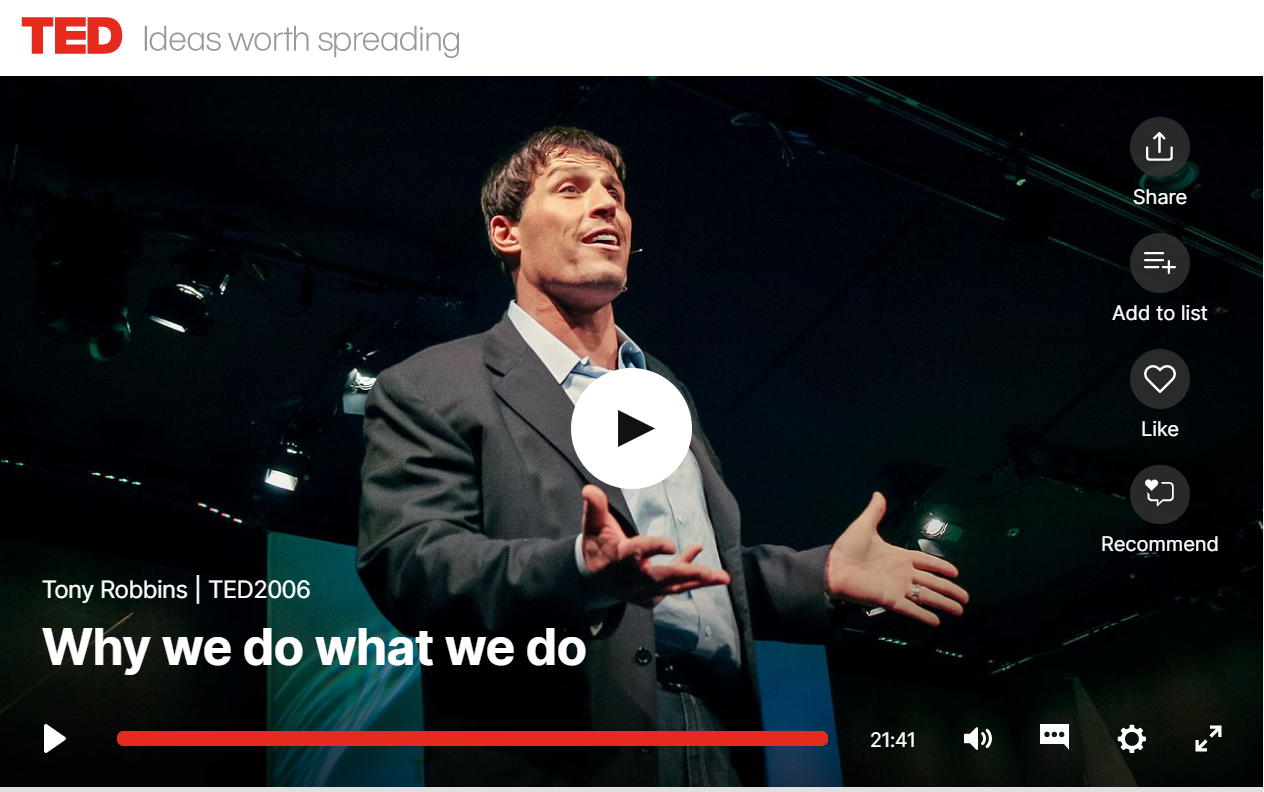每日外闻40
去年,在英国莱斯特的格伦菲尔德医院,一名婴儿出生时心脏就暴露在体外。这是一种非常罕见的心脏易位。有这种心脏易位的婴儿很少能够存活下来,而那些存活下来的婴儿必须忍受无数次的手术折磨,并且由于心脏外漏的原因,他们的需求可能会很复杂,需要有人照顾。
在这名女婴出生三周后,她的母亲接受了一次采访,当被问及她是否做好照顾她女儿的准备时(这是一项艰巨的任务),她毫不犹豫的说,在她看来,这是一种“荣幸”。
态度是我们最强大的心理工具之一,很少有比这个妈妈更有说服力的例子了。我们对一件事的态度能够使我们将错误变为机会,把失败变成一次新的起点。
态度是对特定的对象、人物、事件、或者意识形态的一种较为稳定的思考、感受和/或行为方式。我们用我们的态度来过滤、解释和回应我们周围的世界。每个人的态度都不是与生俱来的,而是通过后天的学习形成的,而这种学习是通过多种方式发生的。
对态度影响最大的时期是儿童时期,那些直接发生在你身上的事,或者你周围的人的所作所为都会对你产生影响。当你获得一种越来越微妙的身份认同时,你的态度会随着那些你认同的人(这些人可能是你的父母、和你同样性别的人、拥有很你一样文化习俗的人或者你崇拜的人-即使你可能不认识他们)进一步发展和完善。友谊和其他重要的关系变得越来越重要,特别是在青春期的时候。
大约是在青春期还有整个成年期时,你所接收到的信息,尤其是那些与你想达成的目标或者成就相关的想法重复出现时,也会重塑你的态度-那些广告商和政客们对此非常了解。
许多人认为我们的态度是内在一致的,也就是说,你对某人或者某物的想法和感受可以预测你对他们的行为。但是,马里兰大学的哈里斯.查克林总结了许多相关的研究,发现某个人的想法和感觉不一定能预测他的行为。
哈里斯发现:通常来说,只有当相关行为很容易做到,并且周围的人也有相似的信念时,你的态度和行为才倾向于保持一致。例如,这就是为什么很多人都相信回收利用和定期锻炼都是有好处的,但他们做的却不与想的一致,因为要做到是需要意识、努力和勇气的,而不仅仅只是说你相信某事是一个好主意。
改变某种态度最有效的方法之一,就是表现得像一个已经按照这种方式感觉和思考的人一样。花些时间反思自己的态度,思考你相信什么以及为什么相信。有没有什么东西你认为是一种负担而不是一种“特权”,如果有的话,那就马上行动-就像其对你是一种“特权”一样。
Last year, a child was born at Glenfield Hospital in Leicester in the UK with her heart outside her body. It is a rare condition known as ectopia cordis. Few babies with it survive, and those who do must endure numerous operations and are likely to have complex needs.
When her mother was interviewed, three weeks after her daughter’s birth, she was asked if she was prepared for what might be a daunting task caring for her. She answered without hesitation that, as far as she was concerned, this would be a “privilege”.
Rarely has there been a better example of the power of attitude, one of our most powerful psychological tools. Our attitudes allow us to turn mistakes into opportunities, loss into the chance for new beginnings.
An attitude is a settled way of thinking, feeling and/or behaving towards particular objects, people, events or ideologies. We use our attitudes to filter, interpret and react to the world around us. You weren’t born with attitudes. They’re all learned, and this happens in a number of ways.
The most powerful influences occur during early childhood and include both what happened to you directly, and what those around you did and said in your presence. As you acquire an increasingly nuanced identity, your attitudes are further refined by the deportment of those with whom you identify - your family, those of your gender and culture, and the people you admire, even though you may not know them personally. Friendships and other important relationships become increasingly important, particularly during adolescence.
About that same time and throughout adulthood, the information you receive, especially when ideas are repeated in association with goals and achievements you find attractive, also refine your attitudes - something advertisers and politicians know well.
Many people assume that our attitudes are internally consistent, that is, the way you think and feel about someone or something predicts your behaviour towards them. However, Harris Chaiklin at the University of Maryland has looked at many studies and found that feelings and thoughts don’t necessarily predict behaviour.
In general, your attitudes will be internally consistent only when the behaviour is easy, and when those around you hold similar beliefs. That’s why, for example, many say they believe in the benefits of recycling or exercise, but don’t behave in line with their views. It takes awareness, effort and courage to go beyond merely stating you believe something is a good idea.
One of the most effective ways to change an attitude is to start behaving as if you already feel and think the way you’d prefer to. Take some time to reflect on your attitudes, to think about what you believe and why. Is there anything you consider a burden rather than a privilege? If so, start behaving - right now - as if that is the case.
See you tomorrow












